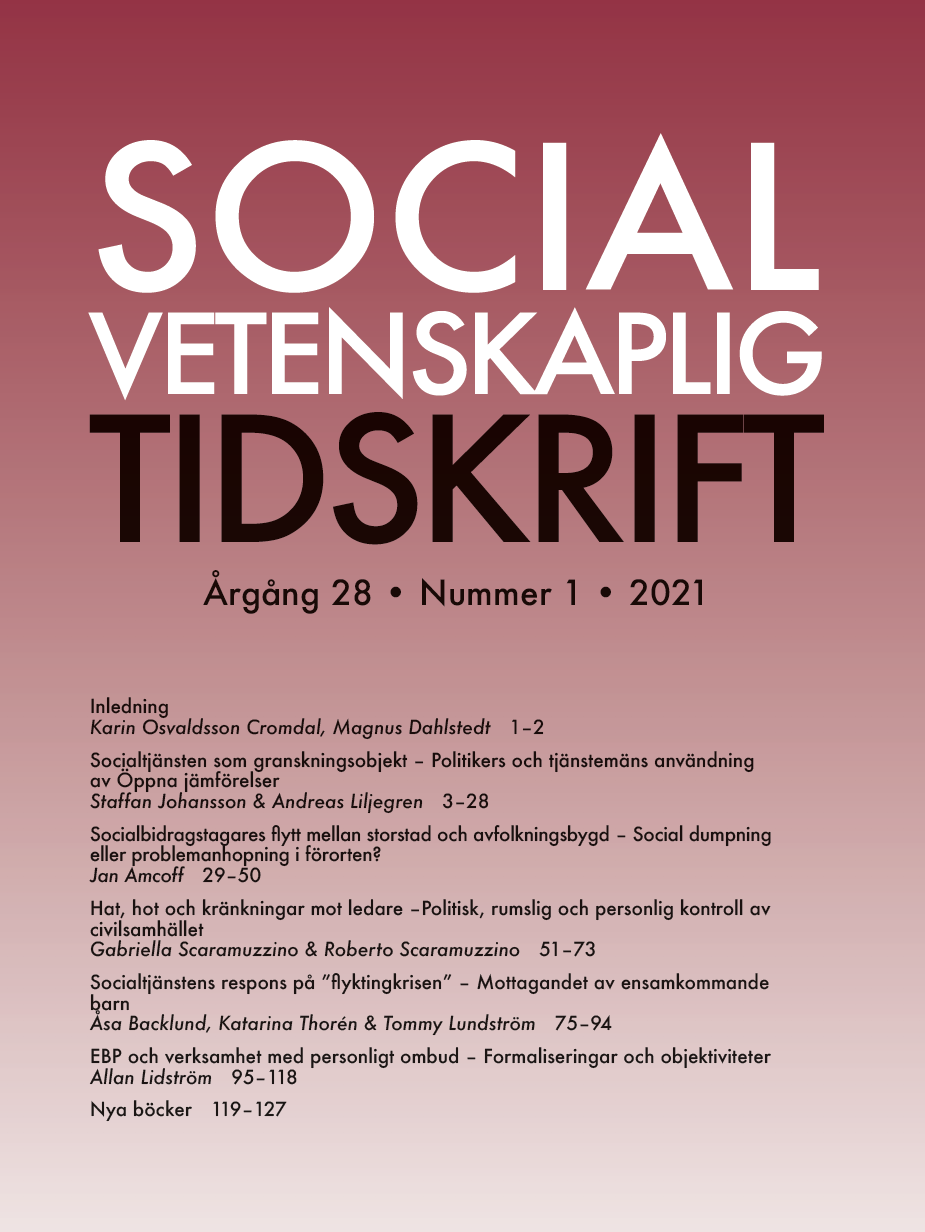Hate speech, threats and harassment against leaders
Political, spatial and personal control of civil society
Abstract
People who are active in the public debate testify to a tougher climate, and a number of chairpersons for civil society organizations (CSOs) have resigned after being threatened and harassed, which has been highlighted in the media. However, our knowledge of hate speech, threats and harassment against civil society leaders is limited. The aim of this article is to explore the extent to which leaders of Swedish CSOs are subjected to hate speech, threats and harassment and which factors can explain why some have been subjected and others not. The article examines the importance of several factors linked to three dimensions: the visibility of the leaders in the public debate (at demonstrations, on traditional media and on social media), the policy area in which they are active, and their social background (gender, age and country of birth). Based on the role of CSOs as a critical voice, these dimensions can be interpreted as forms of control to which actors are subjected through hate speech, threats and harassment – a spatial control based on where they express themselves, a political control based on what they express, and a personal control based on who is expressing themselves. The article draws on a survey from 2017 with answers from 140 civil society leaders (50 percent response rate) for well-established CSOs active in the social welfare policy area. The results show that one in three leaders has been subjected to hate speech, threats and harassment. The results also show that young, female and foreign-born leaders as well as leaders active in the policy fields of “sexuality and LGBT” as well as “gender-based violence and gender equality” are more likely to be subjected to this. This can cause in particular young, female and foreign-born civil society leaders to avoid speaking up in the public space, which may have negative consequences for democracy.
Downloads
Published
How to Cite
Issue
Section
License
Allt material i Socialvetenskaplig tidskrift publiceras sedan 2022 (Vol 28 Nr 2) med omedelbar öppen tillgång (open access), under Creative Commons-licensen CC BY 4.0. Upphovsrätten till innehållet tillhör respektive författare.
Allt innehåll i tidskriften är fritt tillgängligt utan kostnad och får fritt läsas, laddas ned, kopieras, delas, skrivas ut och länkas. När innehållet används måste författare, källa och licens anges. Författaren kan fritt göra sin publicerade text tillgänglig på institutionella och internetbaserade arkiv, exempelvis sitt lärosätes digitala arkiv eller andra tjänster för detta.
Inga publiceringsavgifter tas ut vid publicering i Socialvetenskaplig tidskrift.


